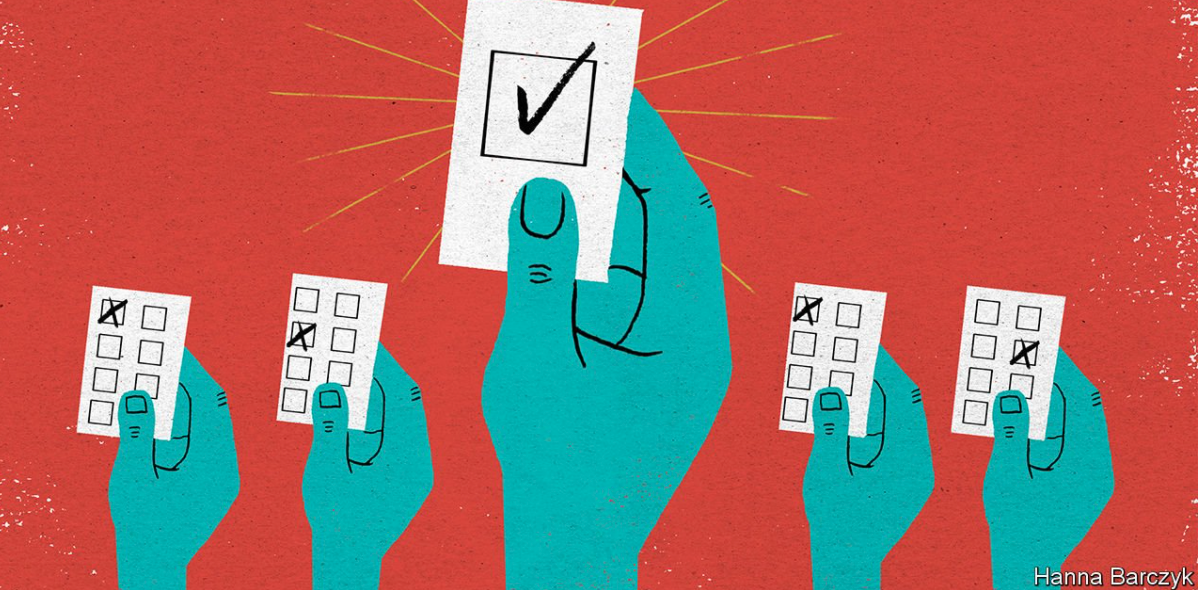Choice is the ability to select between several options. It’s something that we take for granted in our modern-day economy. In the past 200 years, we have seen our economies grow at exponential rates. This competitive economic scene has paved the path to undeniably great innovations as well as unwanted side effects. This increase in choice is a consequence of our hyper-competitive economies where everyone competes for greater market share. This growth in choice has led to a more unhappy and paralysed society than ever. The exponential increase in material wealth in industrial societies encourages the availability of commodity choices, which essentially means that citizens have more disposable income to spend on their interests.
When you go into the store, we are struck by the abundance of choice. For example, we have 50 different types of shower gel or an infinite amount of different computer variants. It is this amount of choice that is oppressing us and consequently making us sadder. In today’s modern world we have too many choices and being able to gather all the information to conduct an educated purchase would take too long. Therefore, our inability to perform an educated purchase leaves us with a constant doubt of not knowing if we made the right choice. Researcher Barry Schwartz calls this phenomenon “choice overload”. Our body and brain were not prepared to deal with these modern-day challenges. Our complex bodies have given us coping mechanisms and reward systems such as serotonin, dopamine, oxytocin and endorphins which are not adapted to our modern world. They are not being released at optimal times as was the case twelve thousand years ago when we were hunter-gatherers.
I believe it is perfectly normal to doubt the decisions we take and what we are sacrificing while buying one product over the other. In business, the cost of the product you did not purchase is referred to as ‘opportunity cost’, and it is essential to calculate it for decision making. However, I believe it is not okay to constantly doubt ourselves, as it is the constant and overwhelming doubting that is ultimately paralysing us.
This growing amount of choices has also led us to have ever-growing expectations. When you go to the store and have the choice between 50 different shower gels, you’d want the one that you buy to be perfect. This growth in expectations has led to a sadder population as it is getting infinitely harder to be satisfied.
We now also have the choice to decide what kind of person we would like to be. Before, our lives were already relatively planned out for us. Now, we get to choose whom we marry, from where and when, but this was not the case before. This means that we have a lot more questions to ask ourselves and it is keeping our brain constantly working. The more choices we must take, the harder it is and naturally, the longer it takes. We talk about procrastination repeatedly in our schools and we, students, get blamed for it all the time; however, it is a consequence of the abundance of choice we now have. We humans naturally want to make the right decisions however, we are given more and more decisions to take, for which we don’t have the qualifications and accordingly we can’t be complacent with the choice we took.
Queerly, you would associate choice with freedom, however, this freedom of choice is distressing us. We must ask ourselves, what benefit is this choice bringing us and what world is it creating for us?
Sources:
Ludwig, pater. (n.d.). Decision Paralysis: How To Stop Overthinking Your Choices | Procrastination.com. Retrieved 15 February 2021, from https://procrastination.com/blog/9/decision-paralysis-overthinking-choices
Porter, J. (2014, June 4). Why Having Too Many Choices Is Making You Unhappy. Fast Company. https://www.fastcompany.com/3031364/why-having-too-many-choices-is-making-you-unhappy
Schwartz, B. (2005, July). The paradox of choice. https://www.ted.com/talks/barry_schwartz_the_paradox_of_choice
Van Edward, V. (2010, December 30). Overcome Choice Paralysis By Giving Yourself Fewer Choices. Science of People. https://www.scienceofpeople.com/choice-paralysis/




